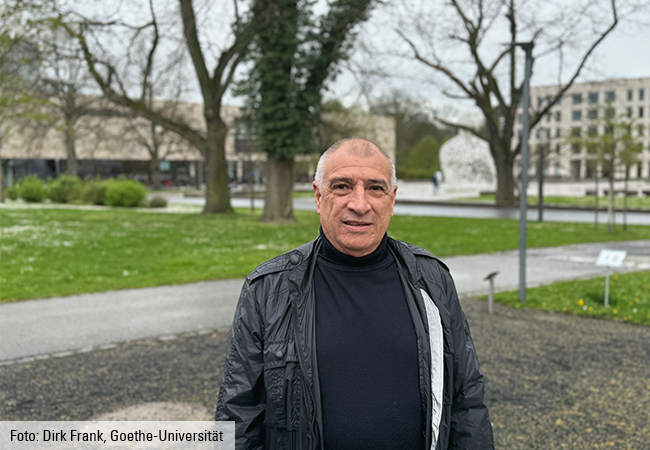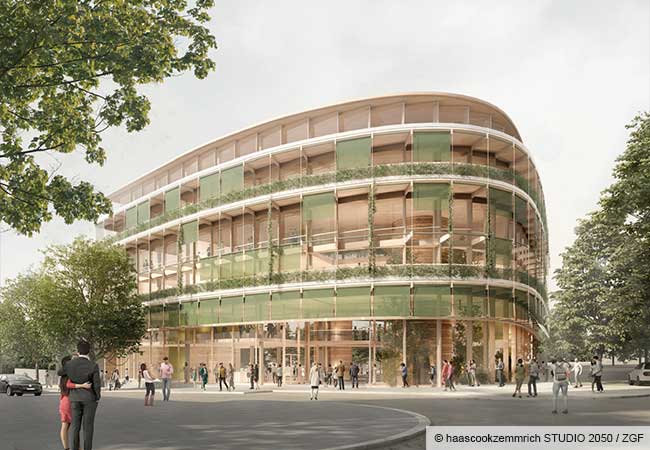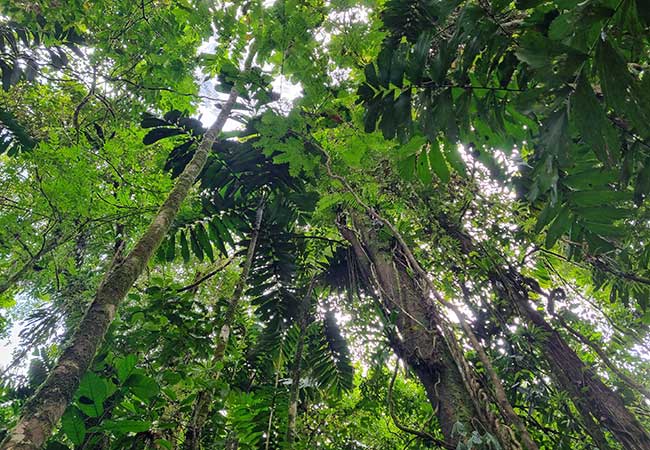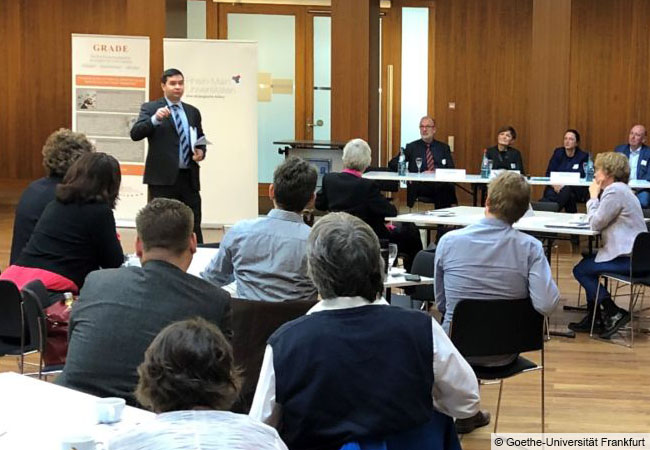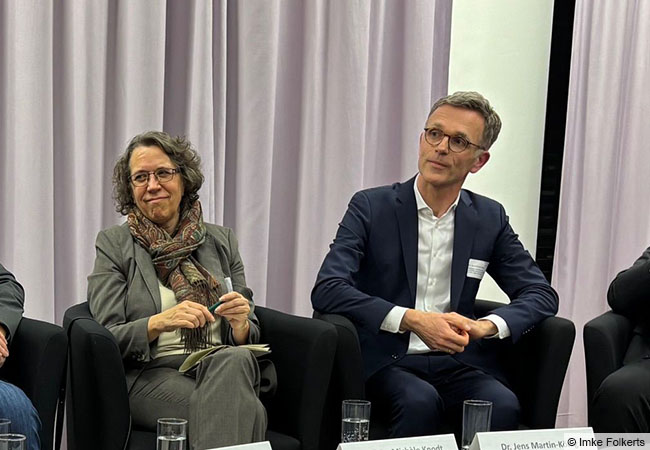At the invitation of the research focus “Democratic Vistas: Reflections on the Atlantic World”, Slovenian philosopher Alenka Ambrož has joined the Forschungskolleg Humanwissenschaften – Institute for Advanced Studies as a fellow.
UniReport: Dr. Ambrož, your postdoctoral project investigates reason and madness as political categories in the context of the Atlantic World. Why is research on this topic important?
Alenka Ambrož: Throughout history, the differentiation between reason and madness has always been politically significant, since it has functioned as a factor for exclusion and has been used to maintain power relationships. To discredit them, women, foreigners, followers of another religion or political opponents were labeled either unreasonable or mad. Rather unusually, it was my research on the philosophy of translation that sparked my interest in this topic. In that context, I studied strategies used in the past to translate languages and life-worlds radically different from our own. A typical ethnological attitude towards a foreign language and foreign customs consisted of labeling the language group concerned as “savage” and attributing a “prelogical mentality” to it. One of the earliest forms of exclusion based on the differentiation between reason and madness can thus be traced back to the way linguistic differences are handled and the tendency of communities to exclude those who do not speak the same language. This was, for example, the attitude taken by the Ancient Greeks towards the barbarians, who were thought to be unreasonable because their language was considered incomprehensible. Since sharing a language (logos) was regarded as a criterion for belonging to the human community, exclusion from the linguistic community was one of the harshest censures one could sustain. Indeed, this spontaneous stance of seeing one’s own language and culture as a model for all others is, according to anthropologist Lévi-Strauss, “the oldest attitude”: During his visits to Native American societies, he observed that the tendency to limit humanity and humanness to the boundaries of one’s own community (tribe, language group, village) applies universally to all groups that come into contact with each other, be they colonizers or natives. Sadly, this is the case today more than ever: With the emergence of the “migration crisis”, populist narratives started to propagate that describe displaced people as uncivilized. These narratives continue to shape collective ideas across the whole of Europe. The refusal to accept other ways of thinking leads to justifications for various forms of violence.
In what way is the idea of the Atlantic World important for you and your work?
The Atlantic World is the cradle of the modern era, of democratic ideals and of many precious humanist values, but also of some of the worst crimes against humanity, such as the transatlantic slave trade, racial segregation and the brutal colonization of the indigenous peoples of the Americas. It is important to keep these two contradictory aspects of the region’s history in mind so as not to focus solely on the former and forget the latter. The Atlantic was and is a region of profound cultural exchange that has spawned several civilizations. We tend to forget that it was precisely through contact and exchange with other cultures that our own cultures and languages evolved: Modern European humanist culture is the result of a series of cultural transfers and translations that transversed not only Ancient Greece and Rome but also the Arab world. The idea of the Atlantic World is a reminder that the “other” has always been a part of us. If we refuse to acknowledge this, various forms of relational pathologies develop, including racism and xenophobia. These pathologies affect not only those subjugated to forms of dominance and discrimination but also those who practice them.
You are also working on the Democratic Vistas project. In your view, what role do the humanities play in giving us a better understanding of democracy and perhaps even in strengthening it?
The current crises of democracy confronting us in Europe and beyond remind us that democracy is always a process that has not yet been concluded and should never be taken for granted. That is something American poet Walt Whitman – the title of the research project pays homage to his essay on “Democratic Vistas”, published in 1871 – was already aware of. Whitman wrote that democracy is not a historical achievement or something we should pat ourselves on the back for, but instead the project of a collective way of life that has not yet been concluded. As long as our democracies continue to struggle with systemic racism, violations of human rights against marginalized groups, police violence against protesters, and so on, democracy remains a project that is pursued but not yet attained. This incidentally is also how I understand Whitman’s call to interpret democracy as a fabric of everyday life, that is, to view democracy not from the abstract standpoint of a normative ideal, but from the standpoint of the lived experiences of all the different groups that make up our societies. The humanities allow us to connect lived experiences with a critical assessment of systemic injustices, all the while considering our shared humanist ideals. At the same time, postcolonial, decolonial, feminist and ecological approaches in the contemporary humanities help us question one-sided and interest-driven approaches to democracy and understand democracy as a truly global project. The world as we know it today is much more globalized than Whitman’s, which is why I believe we need to think about democracy on a global level.
How has your stay in Bad Homburg influenced your research so far?
My stay has allowed me to participate in a number of academic events at Goethe University Frankfurt, which in turn has broadened my research horizons, especially in the field of Critical Theory. At various conferences and seminars, I had the opportunity to meet and make friends with the most fascinating researchers. I have noticed how much the philosophical horizon in Frankfurt differs from the one I encountered in Paris. While the two cities are only a four-hour train ride apart, their research cultures are entirely different! There are definitely many aspects that I will take away with me and incorporate in my future research and teaching. As a center for advanced studies in the humanities and social sciences, the Forschungskolleg Humanwissenschaften in Bad Homburg brings together researchers from different disciplines. For a philosopher, it is very inspiring to chat casually over lunch with jurists, linguists, historians, political theorists, and so on. This type of exchange has introduced some valuable new elements into my research.
What has participating in the John McCloy Transatlantic Forum, which is part of the research focus, meant for you personally?
One of the goals of the John McCloy Transatlantic Forum is to encourage more public thinking about democracy. As such, I had the opportunity to discuss my research with students from a high school in Bad Homburg, which was a wonderful experience. I was very impressed by their curiosity and interest. They knew an awful lot about global history and politics and had their own critical opinion of current affairs, be it the tragic situation in Gaza or the impending elections in the US. I personally felt encouraged to see that critical thinking is very much alive among the young generation in Germany – despite the increasing polarization in the media.
Interview: Monika Hellstern



